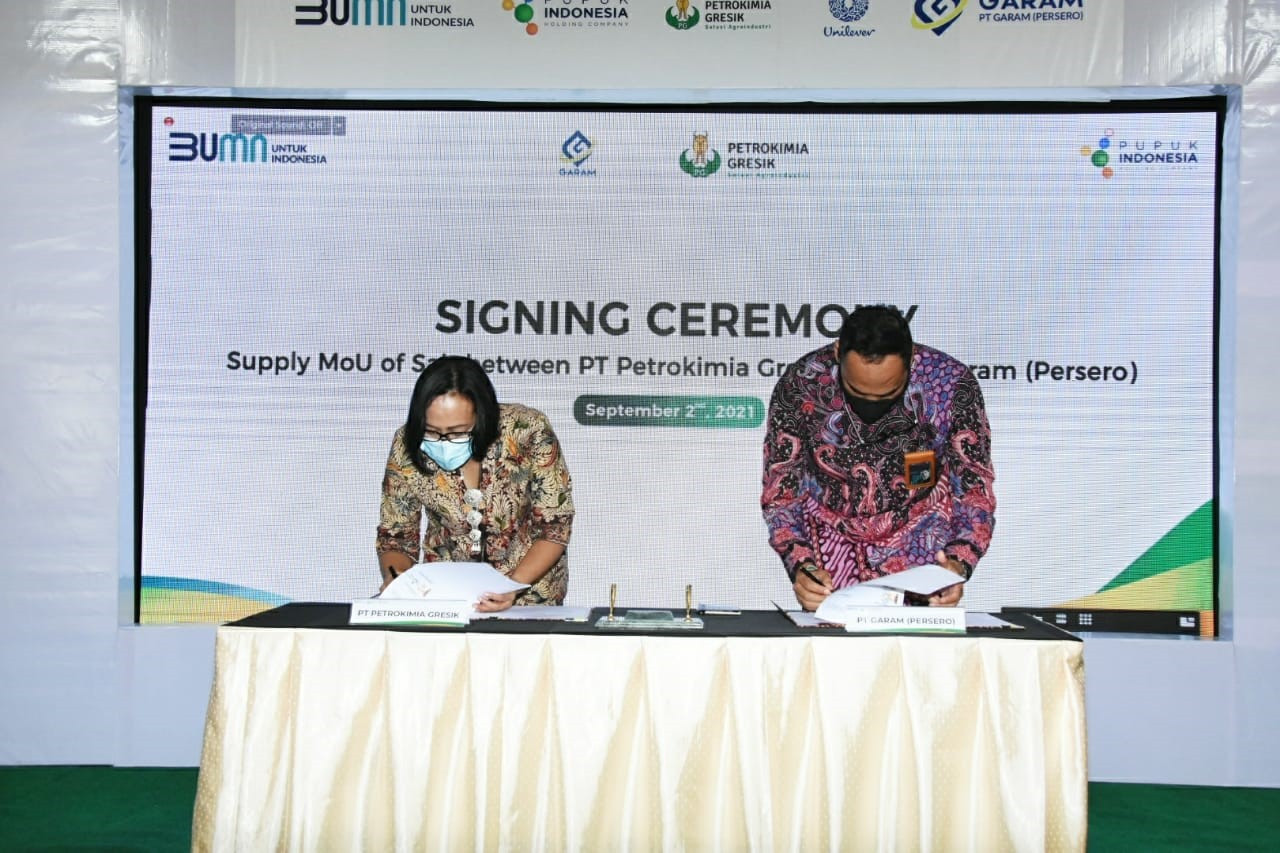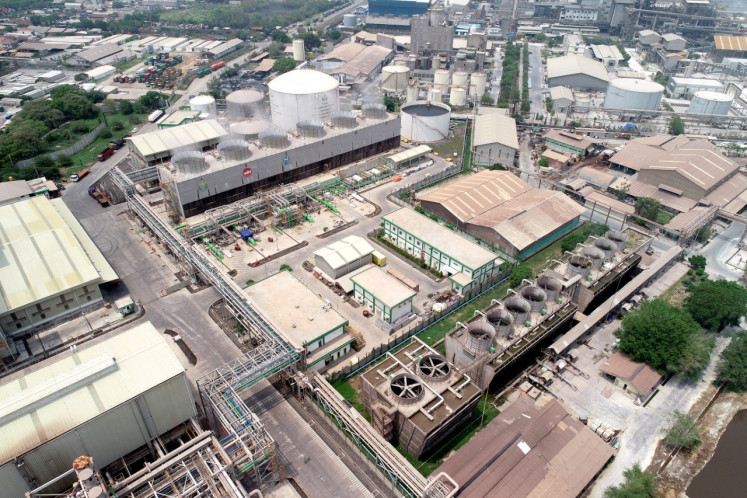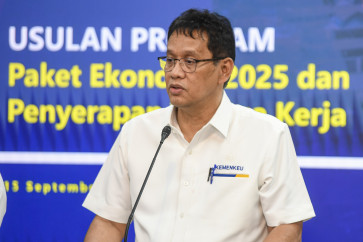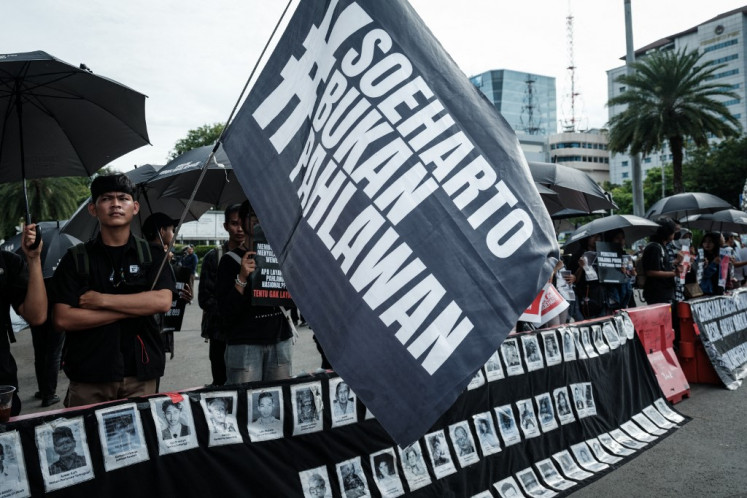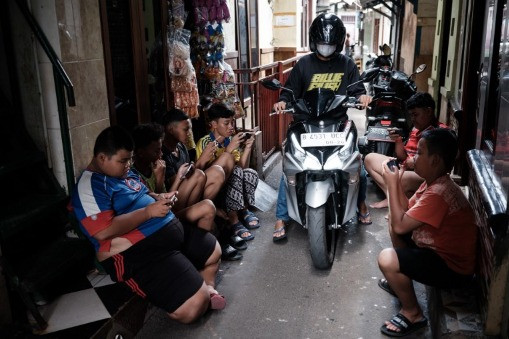Popular Reads
Top Results
Can't find what you're looking for?
View all search resultsPopular Reads
Top Results
Can't find what you're looking for?
View all search resultsPetrokimia Gresik, Unilever Asia, PT Garam team up to build business ecosystem of soda ash
Petrokimia Gresik, an agroindustry solution company and a member of state-owned enterprise (SOE) Pupuk Indonesia, collaborates with PT Garam (Persero) and multinational company Unilever Asia Pte.
Change text size
Gift Premium Articles
to Anyone
P
etrokimia Gresik, an agroindustry solution company and a member of state-owned enterprise (SOE) Pupuk Indonesia, collaborates with PT Garam (Persero) and multinational company Unilever Asia Pte. Ltd. to build business ecosystem of soda ash or sodium carbonate (Na2CO3) factory.
The signing of their memorandum of understanding (MoU) was held virtually on Thursday at two locations with Petrokimia Gresik operation and production director Digna Jatiningsih and PT Garam (Persero) president director Achmad Ardianto in Gresik, East Java, as well as Unilever Asia Pte. Ltd. inorganics procurement director Pratistha Garg in Pasir Panjang, Singapore.
Separately, Petrokimia Gresik president director Dwi Satriyo Annurogo explained that the MoU would ensure the business ecosystem of the soda ash factory’s establishment plan, in which Petrokimia Gresik will purchase industrial salt as the raw material for soda ash and collaborate with Unilever Asia as the off-taker that will absorb the soda ash products.
“The project with PT Garam is a form of teamwork between SOEs with the aim of boosting the national economy, in line with the government’s directives,” Dwi said.
Achmad echoed his statement, adding that the agreement was a huge step for PT Garam to realize a long-term plan to provide quality industrial salt.
“On top of that, it shows the trust of Unilever to get high-quality products supplied by high-quality domestic raw materials.”
. ( Courtesy of Petrokimia Gresik/.)The capacity of the soda ash factory will be around 300,000 metric tons per year, said Dwi. According to the plan, the factory will start operating at the end of 2024, and it will be the first one in Indonesia. Therefore, the presence of this factory is essential and has become a transformative breakthrough in supporting the advancement of the national chemical industry.
Soda ash is a raw material for a variety of products we use in our everyday lives, such as soap, detergent, paper, textiles, ceramics and glassworks. The demand for soda ash in Indonesia is high, but the supply is 100 percent met by imports.
“This is a huge opportunity. The soda ash of Petrokimia Gresik will meet the needs of the domestic market and perhaps even the needs of the global market,” said Dwi.
The establishment of Petrokimia Gresik’s soda ash factory is part of the company’s commitment to strengthening the national chemical industry through related diversified industry strategies. That includes by optimizing the utilization of by-products into new products that have added value to support other industries. This factory will utilize downstream products from an ammonia-urea factory in the form of carbon-dioxide (CO2), which is processed into soda ash.
“Therefore, soda ash produced by Petrokimia Gresik is more environmentally friendly, because we use CO2 as a raw material that comes from the chemical reaction process in urea fertilizer production, not from the combustion of fossils fuels. This is aligned with the greenhouse gas emission principle,” Dwi said.
The by-product of soda ash, in the form of ammonium chloride (NH4CL), can be utilized as a raw material of NPK fertilizer, which can reduce the need to import ammonium sulfate for NPK raw materials.
“This downstream program is expected to make Petrokimia Gresik more capable of carrying out the main task of supporting national food security, as well as strengthen the chemical industry as a national economy driver,” said Dwi Satriyo.
For Unilever Asia, the factory will be an important addition to the industrial structure in Indonesia because it will utilize local sources for soda ash.
The MoU signing also supports the government’s plan to achieve its 35 percent import substitution target by 2022, reducing import dependence on capital goods and raw materials.

